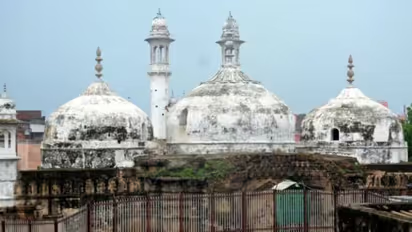Allahabad HC dismisses Muslim pleas, sanctions temple restoration at Gyanvapi; check details

Synopsis
In a landmark decision, the court upheld the national significance of this suit, deeming it maintainable despite these challenges. It underscored that the mosque complex cannot possess a dual religious character and must singularly align with either the Muslim or Hindu faith.
The Allahabad High Court on Tuesday (December 19) brought a significant development to the ongoing legal tussle surrounding the Gyanvapi mosque and the adjacent Kashi Vishwanath temple site in Varanasi. The court dismissed a series of petitions filed by the Muslim side, challenging the maintainability of a suit seeking to reinstate a temple at the location of the Gyanvapi mosque, which the Hindu side claims as an integral part of their temple complex.
Challenging the maintainability of this suit, entities like the Anjuman Intezamia Masjid Committee and the UP Sunni Central Waqf Board cited the 1991 Places of Worship Act. This legislation essentially freezes the religious identity of holy sites as it existed at the time of India's independence, except for the Ram Janmabhoomi-Babri Masjid site.
Karnataka HC urges govt to impose fines on silent spectators in Belagavi woman stripping case
In a landmark decision, the court upheld the national significance of this suit, deeming it maintainable despite these challenges. It underscored that the mosque complex cannot possess a dual religious character and must singularly align with either the Muslim or Hindu faith.
The court's directive to conclude the suit's hearing within six months emphasized the urgency of the matter, signifying the substantial implications of this verdict in the larger legal battle.
This ruling emerges shortly after the Archaeological Survey of India (ASI) submitted a survey report in a sealed cover to the district court. The lower court has scheduled the next hearing for December 21 and retains the option to instruct further investigation by the ASI if deemed necessary.
The Kashi Vishwanath temple, dedicated to Lord Shiva, stands as one of Hinduism's most revered shrines on the banks of the Ganges River in Varanasi. The Gyanvapi Mosque, constructed by Mughal Emperor Aurangzeb in the 17th century, stands adjacent to this temple.
Stay updated with the Breaking News Today and Latest News from across India and around the world. Get real-time updates, in-depth analysis, and comprehensive coverage of India News, World News, Indian Defence News, Kerala News, and Karnataka News. From politics to current affairs, follow every major story as it unfolds. Get real-time updates from IMD on major cities weather forecasts, including Rain alerts, Cyclone warnings, and temperature trends. Download the Asianet News Official App from the Android Play Store and iPhone App Store for accurate and timely news updates anytime, anywhere.